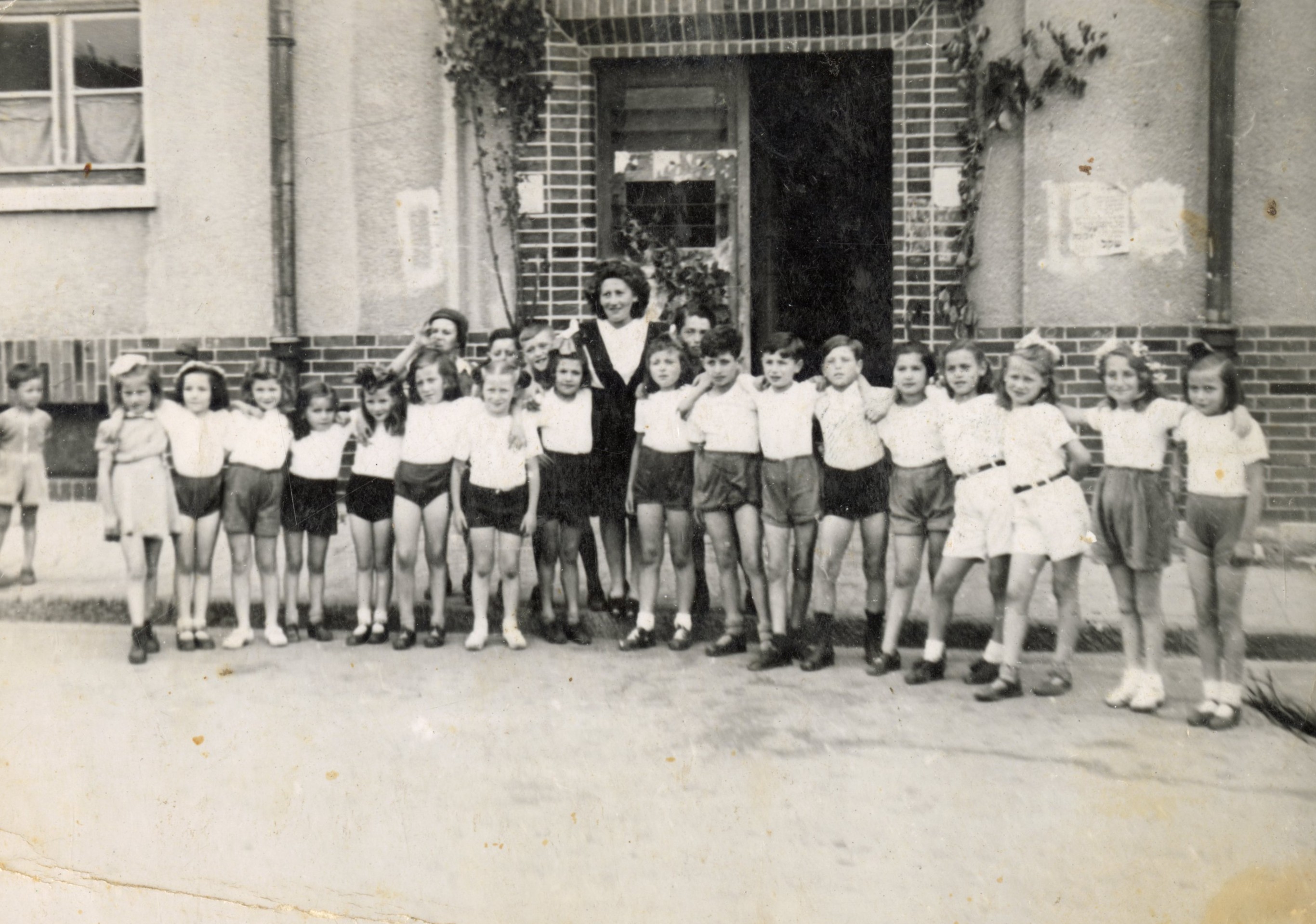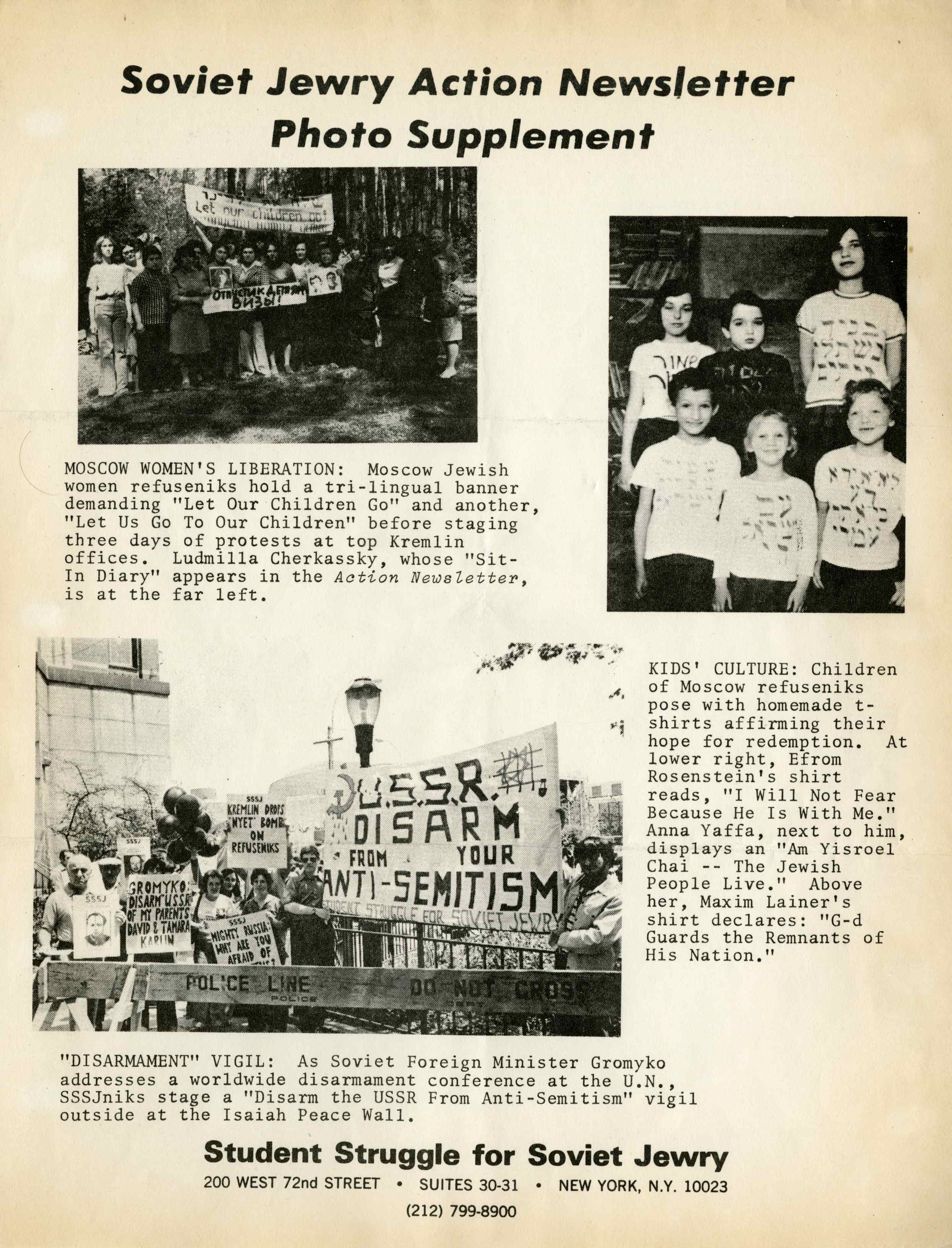Faculty Research in Holocaust and Genocide Studies
Fragments of Memory: Lost Notebooks of Children's Testimonies from the Holocaust

Research Team: Regina Kazyulina and Chris Mauriello
Among the many archival collections donated to the Center for Holocaust and Genocide Studies and its predecessor, the Holocaust Center Boston North (HCBN), are a series of notebooks and photographs from the Bergen-Belsen Displaced Persons (DP) Camp. The hand-written notebooks contain the testimonies of child Holocaust survivors that were transcribed by Fela Cymerman, a Polish survivor and teacher at the Bergen-Belsen DP Camp, in 1945 and 1946. When this collection was first discovered among the HCBN collections, nothing was known about its provenance, Fela Cymerman, or the children whose harrowing survival stories were partially transcribed in the notebooks. Thanks to the generosity of long-time supporters, Harold and Zellie Kaplan, and with help from SSU archivist, Susan Edwards, the notebooks were scanned and later translated by Polish translator, Sean Bye. Using records from the Bergen-Belsen Memorial Archives and the Arolsen Archives, Regina Kazyulina and Chris Mauriello were able to identify the children and trace their wartime and postwar fates, identify the teachers who recorded their testimonies, and ultimately unravel how these notebooks and accompanying photographs came to the North Shore. Having uncovered this history, Regina Kazyulina and Chris Mauriello are now writing a book that will recount the stories and experiences of the children as well as their teachers who did everything in their power, despite their own wartime traumas, to ensure the children’s stories and voices would not be forgotten
The Ethics of Observation: Violence, Memory and New Photographic Practices
Stephenie Young
Dr. Young’s current research project is an assemblage of essays focusing on the relationship between forensic evidence, trauma, and memory in the work of a variety of contemporary visual artists from places including the Unites States, Serbia and Iran, all who use photography as the basis for their powerful and thoughtful projects. She examines the ethics of "looking"—the role of the artist as observer and the possibilities and limits of that observation—since the late 20th century during and after political uprisings, mass violence, and ecological turmoil. Part of her inquiry is dedicated to how these artists are using objects from the natural world—organic matter such as soil and flora—as key components in their production. The subject matter is diverse but connected. She reflects on how photographer Diana Matar's work in post-Gaddafi Libya and Fatma Bucak's installation art about contemporary Turkish Kurdistan create an aesthetics of loss through contemplative representations and what is called "slow thought." She dives into forensics and aesthetics in the work of Serbian artist, Vladimir Miladinović, to contemplate his series Disturbed Soil, about contested histories of the 1990s in the former Yugoslavia and using ICTY photographs of mass graves as its starting point. She also looks at the experimental photography of Léonie Rose Marion, whose work Relever la nuit underscores how the artist grieves the "disappearance” of the night sky in her region of the Swiss Alps due to global warming and light pollution in the Geneva Basin.
Immigration Stories: An Oral History of Russian Speaking Jews in Massachusetts
Regina Kazyulina

For decades, Jews in the former Soviet Union experienced severe restrictions on their cultural and religious identities and widespread antisemitism. Although the Soviet government allowed some to emigrate during the Cold War, many more were denied the right to leave. Known as refuseniks, they faced government intimidation, years of separation from loved ones, and even arrest and imprisonment. Facing international pressure, the Soviet Union began allowing small numbers of Russian speaking Jews to emigrate in the 1970s. After a prolonged human rights campaign and the collapse of the Soviet Union, tens of thousands of Jewish refugees were able to emigrate and settle in the greater Boston area.
In 2022, thanks to generous support from CJP and Mass Humanities, Regina Kazyulina began recording oral interviews with former refugees in the Boston area. Alongside stories of persecution, Kazyulina recorded recollections of happy childhoods and lifelong friendships that belied the everyday antisemitism permeating Soviet society. While many sought to emigrate because of antisemitism or simply to be able to “live in truth” as Vaclav Havel, the renowned Czech playwright, once said, others sought to build better lives in the west. In 2023, some of these testimonies along with research from local archives were incorporated into a museum exhibit displayed at the Lynn Museum/Lynn Arts co-curated by Kazyulina and former CHGS program director, Dan Eshet. To learn more about the oral history project or to participate, please contact Regina Kazyulina at rkazyulina@salemstate.edu.
